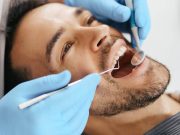
Last December, the former US Surgeon General Vivek Murthy, released a report saying that increased e-cigarette use amongst young people is a “major public health concern”, and urged lawmakers to implement even harsher regulations in relation to use amongst minors.
Upon the release of Murthy’s report, renowned public health expert Dr. Michael Siegel, demanded that Dr. Vivek Murthy apologize to the American people for misleading them. “Even if the Surgeon General wrongly believes that consuming any product that contains nicotine is a form of tobacco use, then he is still lying to the public. Under that definition, e-cigarettes are not the most commonly used form of tobacco among youth. Potatoes are,” said Siegel at the time.
Earlier this week Public Health experts Dr. Riccardo Polosa, Dr. Christopher Russell, Dr. Joel Nitzkin and Dr. Konstantinos E. Farsalinos released a study which re-analysed the data that had informed Murthy’s report. A critique of the US Surgeon General’s conclusions regarding e-cigarette use among youth and young adults in the United States of America, was published in Harm Reduction Journal, Bio Med Central.
Majority of adolescents do not use e-cigs regularly
“Multiple years of nationally representative surveys indicate the majority of e-cigarette use among US youth is either infrequent or experimental, and negligible among never-smoking youth. The majority of the very small proportion of US youth who use e-cigarettes on a regular basis, consume nicotine-free products,” said the study abstract.
It added that the sharpest declines in smoking rates amongst adolescents in the US, have taken place following the advent of electronic cigarettes, whilst pointing out that most of the evidence presented by Murthy pertaining to nicotine harm was not even relevant to e-cigarettes. “Most of the evidence presented in the Surgeon General’s discussion of nicotine harm is not applicable to e-cigarette use, because it relies almost exclusively on exposure to nicotine in the cigarette smoke and not to nicotine present in e-cigarette aerosol emissions.”
Additionally, said the experts’ report, the literature used for The Surgeon General’s report, “describes effects in adults, not youth, and in animal models that have little relevance to real-world e-cigarette use by youth.” Moreover the report exaggerates the effects of certain chemical compounds found in laboratory conditions, that do not reflect the effects that would be obtained in real life conditions.
Available evidence does not support Surgeon General’s claims
“The U.S. Surgeon General’s claim that e-cigarette use among U.S. youth and young adults is an emerging public health concern does not appear to be supported by the best available evidence on the health risks of nicotine use and population survey data on prevalence of frequent e-cigarette use.” concluded the harm reduction experts’ report. The authors added that while patterns of e-cig use in adolescents should be regularly monitored, authorities should keep in mind that thanks to electronic cigarettes, future young adults are less likely to take up smoking.











